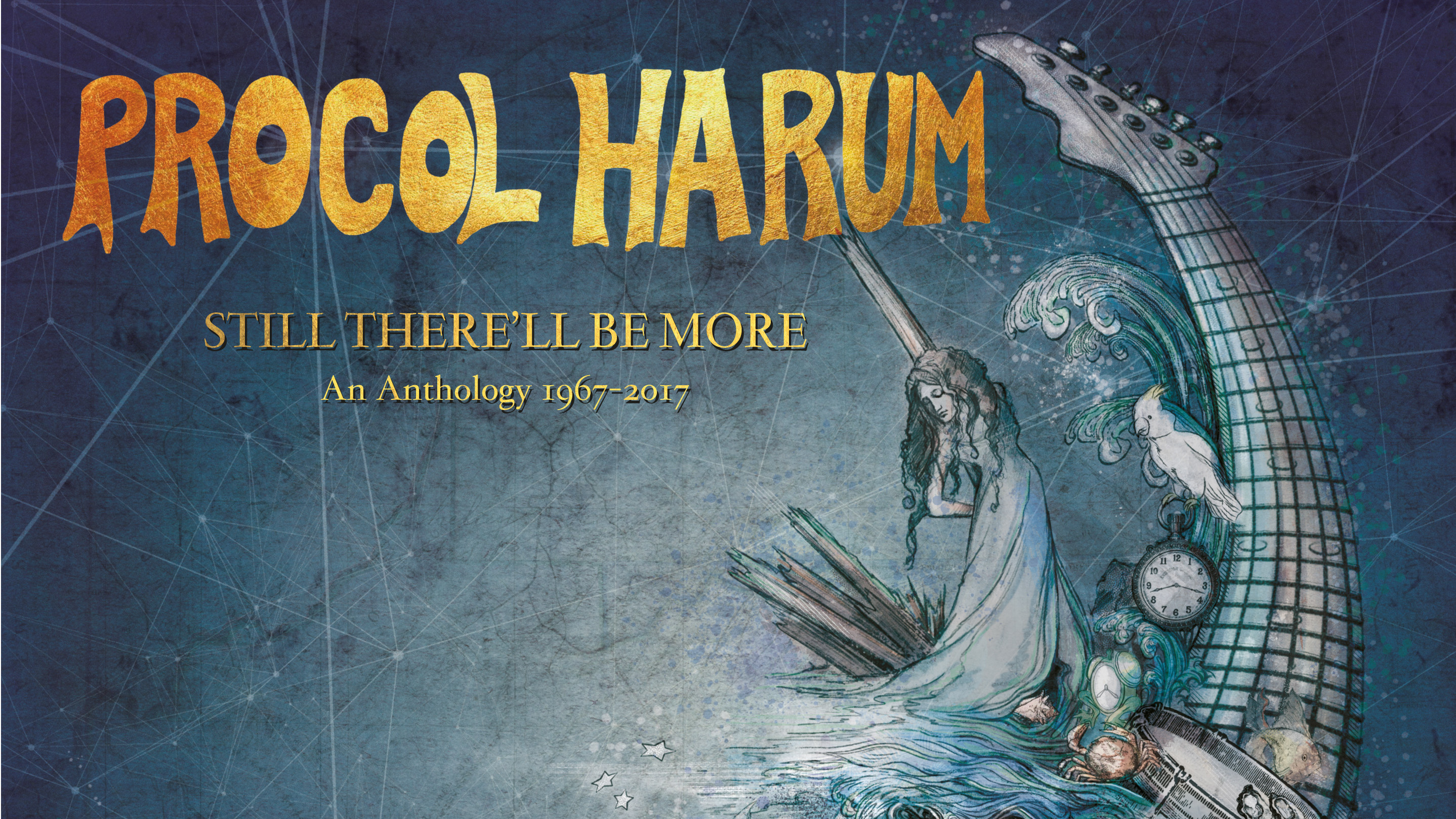You can trust Louder
Just to get it out of the way: it’s widely believed Procol Harum were named after a cat. Whose cat is open to much conjecture, although it’s thought to have been a Burmese. It was ace instigator Guy Stevens who originally put lyricist Keith Reid together with vocalist Gary Brooker in 1966, and, almost inevitably, it was also Stevens (who would latterly name Mott The Hoople, Spooky Tooth and Heavy Metal Kids) who inspiringly ventured to suggest: “Well, my mate’s got this cat…” The rest, as they rarely say, is baroque-pop, prog rock genius with a side order of classic pomp. And an occasional orchestra.
There’s no other band quite like Procol Harum, they’ve a darkly eccentric, quintessentially English cut to their jib. And while, yes, they came from Southend, had roots based firmly in Thames Delta R&B and, from ’67 to ’71, Robin Trower attempting to emulate Hendrix primarily by means of facial contortion, they didn’t quite fit into anyone’s blue-collar rock stereotype.
First of all there was non-performing lyricist Keith Reid who, when not spinning cartwheels across the floor, was never happier than when spinning gothic yarns of whaling fleets and lovelorn seafarers melancholically rounding the Horn. And then there was Gary Brooker.
There’s always been something of the sophisticate about Brooker; he was always a bit velvet jacket and moustache; an adult adrift on a rock’n’roll sea of arrested development. While his dark brown voice rasped with blue-eyed soul, he would also employ an ecclesiastical clarity that engendered hushed tones in an audience. Obviously, Procol’s era-defining soundtrack staple A Whiter Shade Of Pale, all Bach-flaunting conceits and conundrum lyrics, shines brightest from this career-encapsulating, five-disc collection (three of compiled ‘hits’, two full live performances – Hollywood ’73, with orchestra; Bournemouth ’76, without). But delve deeper into the emotive majesty of A Salty Dog, the Iberian immensity of Conquistador or the wistful faded glamour of Grand Hotel and you soon realise that no one else could sell these compositions quite like Brooker.
While always too honest to be called pompous, there was a dignified gravitas about Procol Harum that no other artist working in the rock arena ever quite managed to pull off. Packed with delights from ’67 stem to ’17 stern, this is a glorious collection.
Sign up below to get the latest from Classic Rock, plus exclusive special offers, direct to your inbox!

Classic Rock’s Reviews Editor for the last 20 years, Ian stapled his first fanzine in 1977. Since misspending his youth by way of ‘research’ his work has also appeared in such publications as Metal Hammer, Prog, NME, Uncut, Kerrang!, VOX, The Face, The Guardian, Total Guitar, Guitarist, Electronic Sound, Record Collector and across the internet. Permanently buried under mountains of recorded media, ears ringing from a lifetime of gigs, he enjoys nothing more than recreationally throttling a guitar and following a baptism of punk fire has played in bands for 45 years, releasing recordings via Esoteric Antenna and Cleopatra Records.

